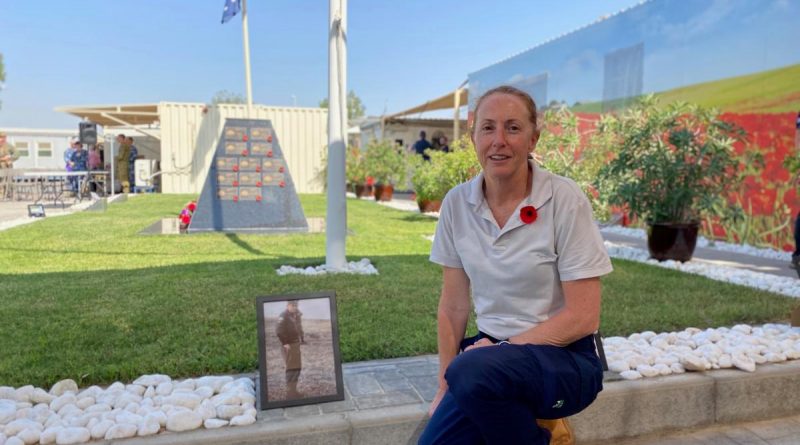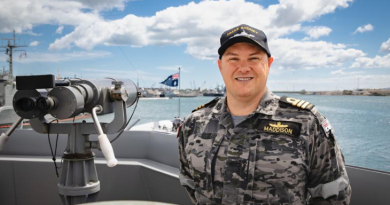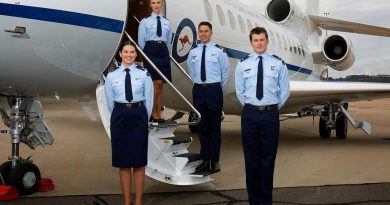RAAF support helps family stay connected

Some of the greatest stress of service life is often experienced by the families of the men and women in the ADF.
CAPTION: Allison Currey (pictured) recently spent seven months away from her family deployed in the Middle East. Story by John Noble.
Regular interstate or overseas deployment can place significant strain on a family and the support they receive can make a huge difference during these periods.
National Families Week, from May 15-21, puts the spotlight on how Australian families are coping with the pressures of modern life and allowed an opportunity to focus on the support the ADF provides to its own families in Australia and overseas.
Allison Currey is especially familiar with the impact working overseas can have on family life having recently spent almost seven months on a deployment to the Middle East while her family coped without her back in Canberra.
On temporary assignment to Defence’s Joint Logistics Command, Ms Currey was successful in securing the APS contract manager role within Operation Accordion to help coordinate a wide range of support for ADF personnel at Camp Baird.
Working with contracted partner Serco, Ms Currey helped provide support via a range of important services ranging from catering through to accommodation management, transport, logistics and facilities maintenance.
Ms Currey’s husband, Royal Australian Air Force Sergeant Reece Rosenblatt, who works as a web manager with RAAF in Canberra, held the fort at home, looking after the family while Ms Currey was in the Middle East.
She said the support her husband received from RAAF showed the organisation cared – and it made all the difference.
“RAAF supported Reece by continuing flexible working arrangements that flowed on from COVID working-from-home policy,” Ms Currey said.
“By enabling Reece to continue to work from home flexibly, he was able to manage the household more easily, being available for our children before and after school – whether it was drop-offs and pick-ups – being with them if they were ill and getting them to sporting commitments more easily.
“He was also home with them after school, which previously we have struggled to fit into normal working hours.
“I really believe this change has benefited the children as they often appeared less stressed when we talked, and we have seen an improvement in their help around the house and school work.”
Without modern technology, Ms Currey is convinced her time away from her family would have been significantly harder.
“While away, I communicated with my family via phone and Signal message and emails, but predominantly we Skyped or used video to see one another in person. It was brilliant,” Ms Currey said.
“With my father in a nursing home, the emails and photos were a great way for us to stay connected and let them see some of the life I was experiencing both on and off base when we were able to get off base.
“We are lucky to have great support from our Royal Australian Air Force friends and their families who share similar experiences of absences, as well as our own family network who are very accustomed to someone in the family being away often for both long and short periods.”
.
.

.
.





